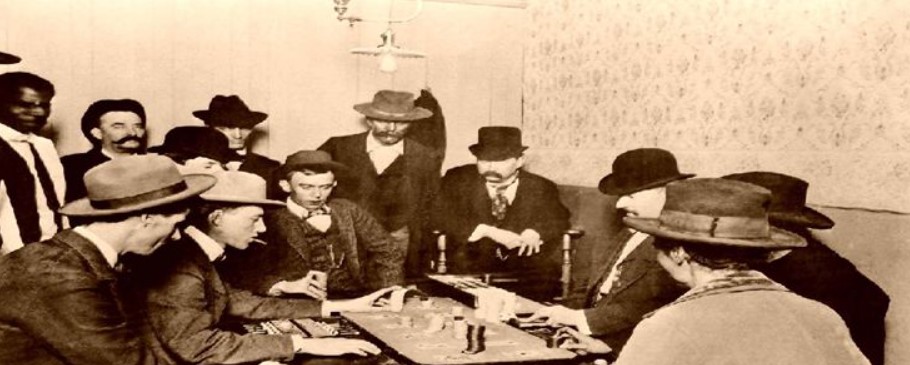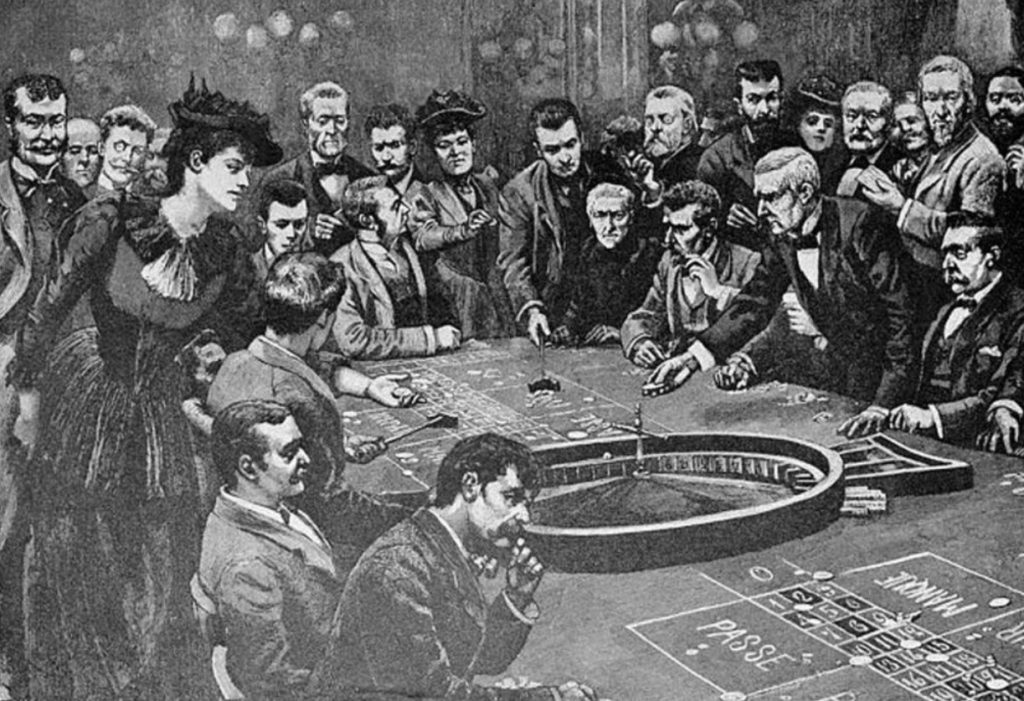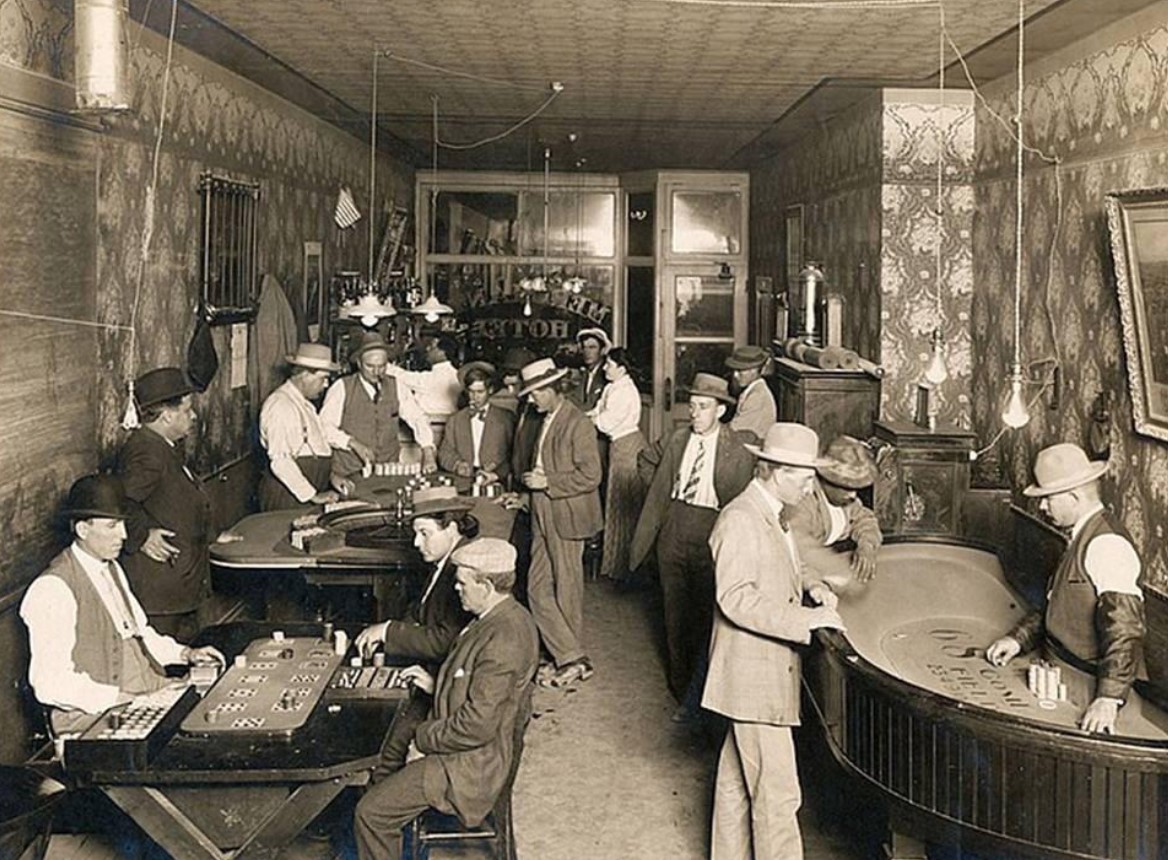In the sprawling tapestry of American culture, few phenomena have woven as colorful and controversial a thread as the history of casinos. From the dusty, smoke-filled saloons of the Wild West to the glittering casino floors of Las Vegas, the journey of gambling establishments in the United States is not just a story of entertainment. It is also one of societal evolution, economic impact, and cultural integration. This chronicle begins in the rugged frontiers where origins of gambling was both a pastime and a makeshift economic system, evolving through eras of prohibition and regulation. It culminates in the digital age, where online casinos have redefined the very essence of gambling. As we delve into the rich narrative of how these centers of fortune and despair came to be, we uncover the layers of influence they exert on both local economies and the global cultural landscape. When did casinos start, it was a true reflection of the development of the nation, its challenges and the eternal appeal of gambling
The early beginnings of the casino
The early beginnings of the casino in America can be traced back to the saloons of the Wild West, where gambling was a popular pastime among pioneers and settlers. These establishments were often the epicenters of entertainment and social interaction, where individuals from all walks of life gathered to play cards, dice, and other games of chance. This period marked the initiation of the history of gambling in the US, characterized by a rough-and-tumble yet vibrant gambling culture. The history of gambling during these times wasn’t just about leisure; it also played a crucial role in the social and economic fabric of early American settlements.
As these gambling activities continued to grow in popularity, the structure of early American gambling venues began to evolve, leading to the establishment of the first dedicated gambling halls. These were the precursors to the modern casino and were instrumental in shaping the history of casinos. It was during this era that the question when were casinos invented in America start finds its answer, with formal venues beginning to appear in the 19th century. This period not only saw the rise of casino cultures but also set the stage for more organized forms of gambling.

How was the world’s first treasury created?
The creation of the world’s first treasury intertwined closely with the development of organized economies and the establishment of states. The concept of a treasury developed as civilizations grew and the need for a centralized repository of wealth became apparent. This centralization was essential not only for the collection of taxes but also for the funding of public works, military endeavors, and governmental operations. Interestingly, the origins of many treasuries were closely linked with origins of gambling, as rulers and states often sanctioned or organized early gambling activities to raise funds.
In the context of the history of gambling, these early forms of gambling contributed significantly to state coffers, essentially acting as early models for public finance. Over time, the role of gambling in state revenue became more formalized, influencing the economic strategies of kingdoms and later modern states. The integration of gambling revenues into state economies was a testament to the enduring relationship between gambling and governance, reflecting its impact on the financial foundations of societies.
Development of casino culture
The development of casino cultures in America has its roots deeply embedded in the traditions of European gambling houses combined with the unique American frontier spirit. The gambling history of Europe provided the games and the initial etiquette, which were then adapted to the informal and dynamic atmosphere of the American West. This blend led to a distinctly American gambling scene where gambling in the old west was not just about making money but also about entertainment and socializing, making it a community focal point.
As the 19th century progressed, these rudimentary forms of gambling evolved into more structured establishments, when were casinos invented in America. This evolution was marked by a transition from simple saloon-based gambling to more elaborate venues that offered a variety of games and services. These developments were critical in shaping the modern casino cultures, turning gambling from a casual pastime into a major economic and cultural force in the United States.
Legalization and regulation of casinos
The legalization and regulation of casinos in America were milestones that significantly altered the history of gambling in the US. Initially, gambling activities operated in a legal gray area, which often led to a clash between law enforcement and casino operators. However, the realization of the economic benefits that could be derived from gambling prompted several states to reconsider their stance on gambling. The move towards legalization was a key turning point in the history of casinos in America, as it allowed for the establishment of regulated and standardized gaming facilities.
This regulation was crucial in mitigating the criminal elements associated with gambling and ensuring fairness and security for patrons. The introduction of strict regulatory frameworks helped in nurturing trust among the gambling community, leading to the expansion and flourishing of the casino industry. The history of gambling in the US saw a dramatic transformation during this period, as the industry began to shed its outlaw reputation and became a recognized part of the American entertainment and tourism sectors.
Expansion and modernization
The expansion and modernization of the first casino in USA are characterized by rapid growth and technological advancements. The history of gambling saw a significant change with the introduction of electronic gaming machines and the eventual rise of internet gambling, which revolutionized the way people engaged with gambling. The proliferation of casinos across Las Vegas and Atlantic City marked a new era in the history of casinos in America, where luxury and spectacle became as integral to casino environments as the old gambling games themselves.
This era also saw the increasing integration of casinos into larger resort complexes, offering not just gaming but a complete entertainment experience. This shift not only redefined the casino cultures but also transformed casino destinations into economic powerhouses, contributing significantly to local and state economies. The modernization of casinos has continued with the advent of digital technologies, leading to the next evolution of the industry in the form of online gambling platforms.

Modern online casino games
Modern online casino games represent the latest chapter in the history of gambling. These platforms have brought the excitement of Las Vegas to the global audience, accessible from the comfort of one’s home. The transition from physical to digital platforms has expanded the reach and scope of gambling activities, allowing for a diverse array of games that cater to different tastes and preferences. This digital revolution in gambling also reflects the ongoing evolution of old gambling games, which have been adapted to fit the online format, offering players a new and dynamic way to engage with gambling.
The convenience and accessibility of online gambling have led to its rapid growth and popularity, marking a significant shift in casino cultures. These platforms not only offer traditional casino games but also include innovations like live dealer games, which simulate the real-time actions of a physical casino, blending the old with the new. This development has not only influenced the gambling history but also set the stage for future innovations in the gambling industry.
Global influence of casinos in the world
The global influence of casinos has been profound, with the American casino model serving as a blueprint for other countries. The history of gambling across the world has been significantly shaped by the success of places like Las Vegas, which turned casino gambling from a leisure activity into a major international industry. This influence has led to the adoption of similar models in Asia, Europe, and other regions, each adapting the concept to fit their cultural and regulatory environments.
As a result, casinos have become a global phenomenon, contributing to tourism, entertainment, and economic development worldwide. The American experience, with its rich gambling history and evolution, has been a critical reference point in this expansion, influencing both the development of casino laws and the growth of casino-based tourism. This global spread has also facilitated a cultural exchange, where casino cultures blend and influence each other, leading to a more interconnected and diverse gambling landscape.
Cultural influence
The cultural influence of casinos extends beyond the realms of gaming and entertainment, impacting various aspects of American and global culture. The imagery and ideas associated with casinos have permeated popular media, influencing films, music, and literature. The allure of the high-stakes environment, the glamor associated with casino lifestyles, and the drama of risk and reward are themes that have been explored in countless creative works. This cultural penetration illustrates the profound role that gambling in the old west and modern casinos play in shaping public perceptions and cultural trends.

